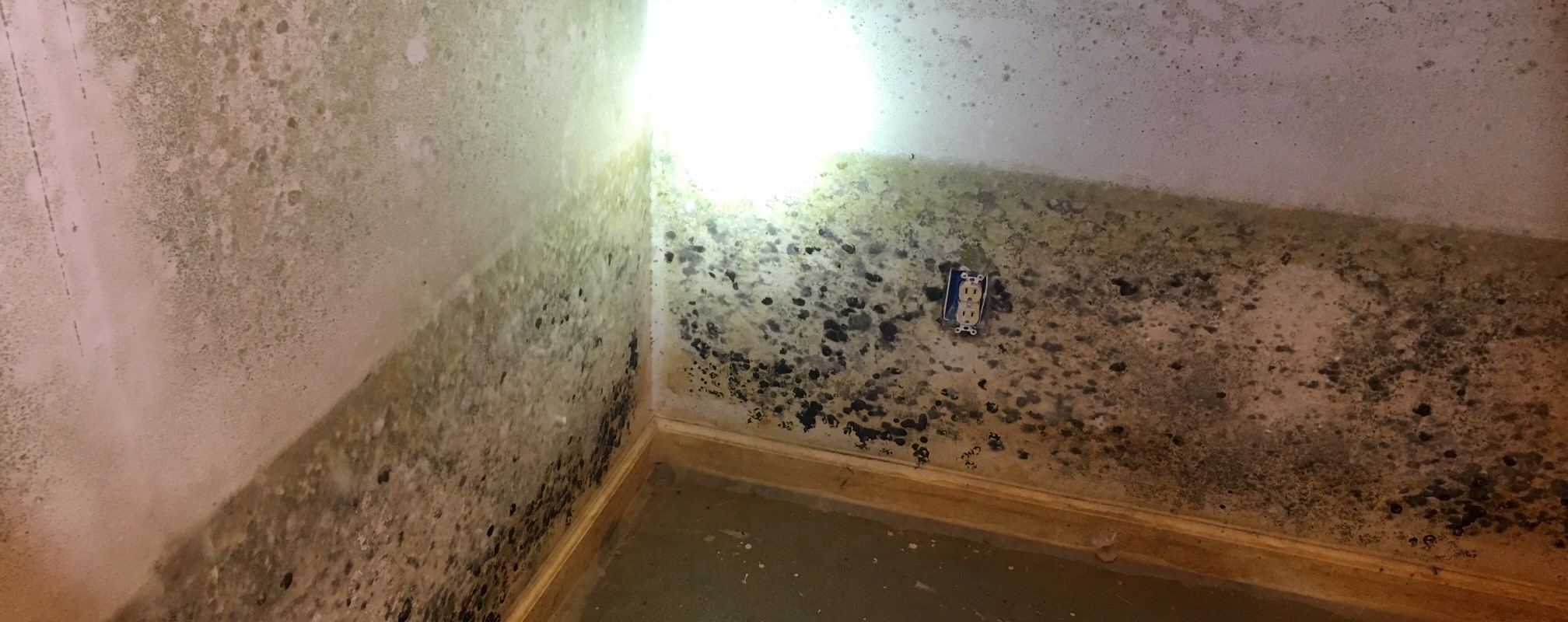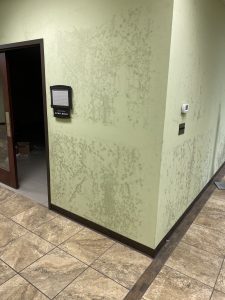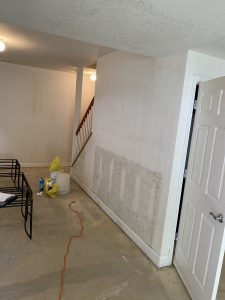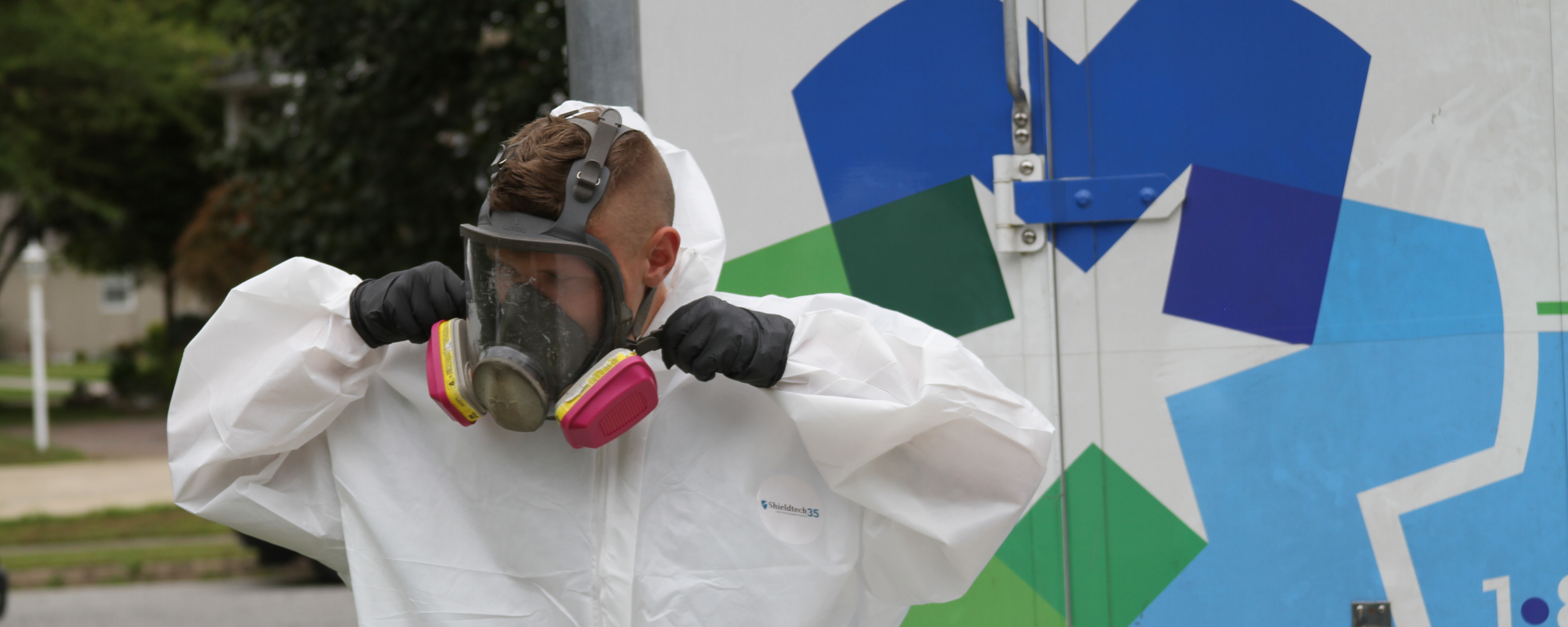
Mold in closed up buildings is a common problem given vulnerabilities to moisture buildup in a vacant building. However, with the recent shutdown, there has been an influx of mold in closed buildings like vacant properties and closed businesses throughout South Jersey. Unoccupied schools, offices, public buildings and commercial properties are a breeding ground for mold growth. With limited air circulation, non-operating HVAC systems, elevated humidity buildup, and lack of maintenance checks and repairs — we have been getting a lot of reports of widespread mold contamination when property owners went to open up the buildings that have been closed up all this time through the COVID-19 pandemic.
Finding Mold in Closed Up Buildings In South Jersey
 Months ago, businesses throughout New Jersey were shutdown in an effort to contain the spread of COVID-19. With the rising pandemic, business owners, property managers and employees closed down shop without any certainty of returning. As New Jersey slowly lifted its state-wide shutdown orders, business owners, facility managers, maintenance staff and contractors went to work to prepare for reopening. Of course, there was a lot of work to be done before reopening — like general cleaning and maintenance checks. No matter, we are just all excited to begin to transition operations to meet the new normal.
Months ago, businesses throughout New Jersey were shutdown in an effort to contain the spread of COVID-19. With the rising pandemic, business owners, property managers and employees closed down shop without any certainty of returning. As New Jersey slowly lifted its state-wide shutdown orders, business owners, facility managers, maintenance staff and contractors went to work to prepare for reopening. Of course, there was a lot of work to be done before reopening — like general cleaning and maintenance checks. No matter, we are just all excited to begin to transition operations to meet the new normal.
What a lot of people probably did not expect to open the doors and find was… mold — mold everywhere. A prolonged period of inactivity allowed moisture buildup in closed up buildings throughout New Jersey — enough moisture buildup to cause and sustain substantial mold development. Months of being closed up with no supervision, no maintenance, no ventilation and no air conditioning left a lot of South Jersey property owners scrambling to figure out how to deal with the serious mold issues at hand.
Lack of Supervision In Unoccupied Commercial Properties
Unfortunately, most building structures are not self-sufficient — meaning that buildings need attention, maintenance and monitoring. In a normally operating business, school or public building — building occupants and maintenance staff are constantly there to spot signs of problems and address them in a timely manner. When a building is being used, there are people to spot and repair leaks, wipe up spills, report flooding, dry up puddles, conduct maintenance checks, and do all the things that keeps a building in good condition and operational.
Mold develops in damp environments. Even deceptively minor issues like condensation or humidity can lead to serious mold growth in enough time. When we close up a building and leave it vacant for months due to a country-wide shutdown, there’s no one to keep an eye on things. Leaks go unfixed, flooding goes unnoticed, condensation collects, and humidity builds up — leaving behind mold everywhere for us to find when we open back up.
Humidity & Poor Air Circulation Causes Mold In Closed Up Buildings
 Mold in closed up buildings is not a new issue. Commercial properties, schools and other buildings close up and get abandoned all the time. But, with the recent stretch of shutdown during the hot and humid Jersey summer, we have been hearing more and more reports of widespread mold in properties that were vacant through quarantine. Even in an open, occupied and operational building, humidity buildup can wreak havoc on building materials throughout the commercial structure. Now, imagine what that humidity can do when a building is all closed up for months — no ventilation, no air conditioning, no air circulation and no supervision. It is a recipe for a moldy disaster.
Mold in closed up buildings is not a new issue. Commercial properties, schools and other buildings close up and get abandoned all the time. But, with the recent stretch of shutdown during the hot and humid Jersey summer, we have been hearing more and more reports of widespread mold in properties that were vacant through quarantine. Even in an open, occupied and operational building, humidity buildup can wreak havoc on building materials throughout the commercial structure. Now, imagine what that humidity can do when a building is all closed up for months — no ventilation, no air conditioning, no air circulation and no supervision. It is a recipe for a moldy disaster.
It has been a particularly hot and humid summer this year (wouldn’t expect any less considering how this year is trending). Closed up businesses, schools and other buildings just sat around, unattended with little to no air flow to circulate out the warm, moist air. All that humidity just collected, and water vapors just soaked into the porous building materials. A lot of people were greeted with wide spread mold growth caused by humidity when they went back to the property for the first time in months.
No Heating & Air Conditioning In Vacant Schools & Public Buildings
With most buildings closed since mid March or early April, a lot of buildings never had the air conditioning turned on for the year. With the HVAC system turned off (or never turned on), there was no mechanical air circulation in the closed, vacant and unoccupied properties throughout South Jersey. Stagnant air leads to moisture buildup, especially with such high humidity during South Jersey summers. Water vapors from the warm, moist air soaks into porous building materials like drywall, drop ceiling tiles and carpet — leading to mold development.

Removing Mold In Closed Up Buildings in South Jersey
If you discover mold growth in a building that was closed and largely unoccupied during quarantine, you should consult a professional mold removal company. Mold is a bio-contaminate that needs to be actively removed from the contaminated environment. Unaddressed indoor mold growth can mean property damage, structural damage, health risks and safety hazards. Mold remediation of schools, commercial properties and public buildings should be completed by a trained mold remediation professional. A serious mold contamination requires remediation under HEPA-filtered, negative air containment to prevent cross-contamination and ensure safe indoor air quality. Removal should be completed in accordance to specific remediation protocols and following strict safety standards. Cleanup should be completed by trained technicians wearing the proper PPE, while using the necessary professional-grade cleaning equipment and cleaning agents.
If you are among the lucky group of people who returned to work and did not find any visual indicators of mold, you might still want to consider getting a mold inspection just to be safe. Mold and moisture can spread and affect virtually any surface, even hidden surfaces. To the untrained eye, mold can be difficult to identify. A commercial mold inspector will be able to conduct an assessment and determine if mold developed in your building while it was closed. In addition to potential mold conditions, mold inspections of vacant properties often reveal valuable information regarding any underlying dampness as well.
Mastertech Environmental provides mold removal services for commercial buildings throughout South Jersey. Our trained and certified team of mold inspectors also provide mold inspections with mold testing in commercial properties. Contact us to learn more — 609-948-8844.


